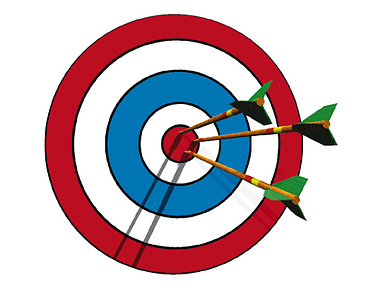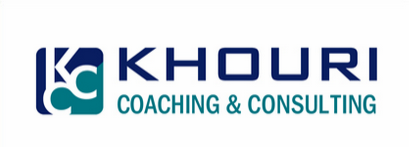Inc Magazine recently published an article with lessons from 15 American CEOs about productivity. Just so we are absolutely clear about this, I wanted to separate these in to three categories for you: bulls eye, on target, and missing the mark.
Bulls eye
These productivity ideas are right on the mark, and I like the insights of these executives.
The idea: Answer the phone
The Executive: Jordan Zimmerman, founder of Zimmerman Advertising
My take: Communication is key. The richest form of communication is face-to-face and next to that is the phone. Choose your communication medium based on the context. Email, online is not always the right answer. Keep in touch with your customers, your team, your partners.
The idea: Organize Your Daily Interruptions
The Executive: Danny Meyer, CEO Union Square Hospitality Group
My Take: This is a unique idea which is to have your assistant or someone capture all of the potential interruptions and summarize them at the end of the day. Now, part of being effective is making conscious decisions in the moment about the importance of an interruption relative to what you are working on. This helps compartmentalize it a bit. If you don't have an assistant, you could emulate this in some other way.
The idea: Use a Wiki to Capture Ideas
The Executive: Garrett Camp, founder of StumbleUpon
My Take: Your job is knowledge. Capturing information and ideas from your team in a structured way that team members can refer to as needed is a big productivity boost. A wiki is great technology to do that.
The idea: Schedule time to focus on the big picture
The Executive: Scott Lang, CEO Silver Spring Networks
My Take: It is easy to get bogged down in the day to day demands of you job, and react to the latest and loudest. It takes discipline to block time to think -- about strategy, vision, goals.
The idea: Avoid multitasking
The Executive: Douglas Merrill, former CIO of Google
My Take: The simple truth is, and the research supports this, that we get more done when we are focused on one thing than we are when we try to do multiple things simultaneously.
The idea: Always be interviewing
The Executive: Kevin P. Ryan, Double-Click and AlleyCorp
My Take: The spirit of this idea is very good which is to stay in touch with your team, your extended team, and your entire team as appropriate. Keep looking for and assessing talent. As Jim Collins says, "people are not your greatest asset, good people are your greatest asset."
On Target
These ideas are good but need a clarification to make sure you are making the most of them.
The idea: Skip meetings
The Executive: Mark Cuban, Dallas Mavericks owner and CEO, HDNet
My Take: Yes, some meetings are worth skipping. And meetings 8-10 hours / day every day do not make sense. In the spirit of face-to-face communication, meetings are worthwhile. Face-to-face communication is important. To make sure meetings are worthwhile, the planner should invite the right people, communicate an agenda 24 hours ahead of time, and be clear about the successful outcome.
The idea: Live by the "two-pizza" rule which is that project teams should be small enough to feed with two pizzas
The Executive: Caterina Fake, co-founder Flickr
My Take: Artificial team sizes and random meeting end times can actually hurt your productivity. I would rather see the spirit of the rule followed to keep teams small and use your judgement. Again, make sure meeting agendas are clear, and use the time necessary to get done what you need to, even if it is less time than scheduled.
The idea: Hire for flexibility
The Executive: Julie Ruvolo, co-founder and COO of Solvate.
My Take: Nothing really new here, businesses have been hiring contractors for years.
The idea: Use email to document
The Executive: Karl Hoagland, founder of Larkspur Hotels and Restaurants
My take: Again, nothing really new here. Yes, email is a great documentation tool, and you should use it to schedule meetings and confirm appointments. It just wouldn't make my top 15 productivity concepts.
The idea: Always save time to exerice
The Executive: Mike Cassidy, CEO Ruba
My Take: Yes, in fact schedule time to exercise. If you save time, it will never happen. Schedule around it like you would any other appointment.
Missing the Mark
These next few items are just not good productivity best practices. I am sure they work for those executives, just be cautious about accepting them broadly.
The idea: Rank items on your to-do list
The Executive: Barbara Corcoran, Shark Tank panelist
My take: David Allen, productivity guru, says that priority is actually the fourth criterion to look at when deciding what to do. Number one is context (where you are and what tools you have available), number two is time available, and number three is your energy. Then priority. Your number one priority may require two hours and if you only have ten minutes right now, then do something else.
The idea: Be extra-productive during off hours. Choose work over social life.
The Executive: Seth Priebatsch, CEO SCVNGR
My Take: I know the lines between work and personal are blurring and they have been for a number of years. We are doing personal business at work and vice versa. I advocate keeping an all-life to do list, and working on it at the appropriate times. The bottom line is be productive when it makes sense, not more or less during off hours as Mr. Priebatsch suggests. And make time for social, fun, family, and whatever else is important to you. Balance.
The idea: Shrink your mental deadlines
The Executive: Krissi Barr, founder of Barr Corporate Success
My Take: Generally, we underestimate how long things take to complete, proven by research called the planning fallacy. So this concept of working faster to complete something is less time than you think it will take is unrealistic and will put unnecessary pressure on yourself. It seems to be prone to mistakes.
The idea: Review your productivity at the end of the day
The Executive: Bob Compton, CEO Vontoo
My take: A daily review of your schedule and actions is critical to help you stay focused on the right things for the day. A weekly review of your full inventory of actions, schedule, and important to keeping it all up to date. Othwerwise, your actions get stale and you don't trust your lists. Adding yet another review to see how you did at the end of the day is superfluous and is not the best use of time.
Don's coaching questions:
Which of these can you implement immediately to be more productive?
What is your personal most productive time of the day that you can plan to get your most challenging actions complete?
How can you use technology to support your productivity practices?
I would love to hear your ideas on productivity, and how they help you and your teams. 
 goals? When are they really motivated to achieve them, and when do they seem to be going along because it is required to do so? There are three needs that must be fulfilled for individuals to want to pursue their goals -- competence, connected, and autonomy.
goals? When are they really motivated to achieve them, and when do they seem to be going along because it is required to do so? There are three needs that must be fulfilled for individuals to want to pursue their goals -- competence, connected, and autonomy.





